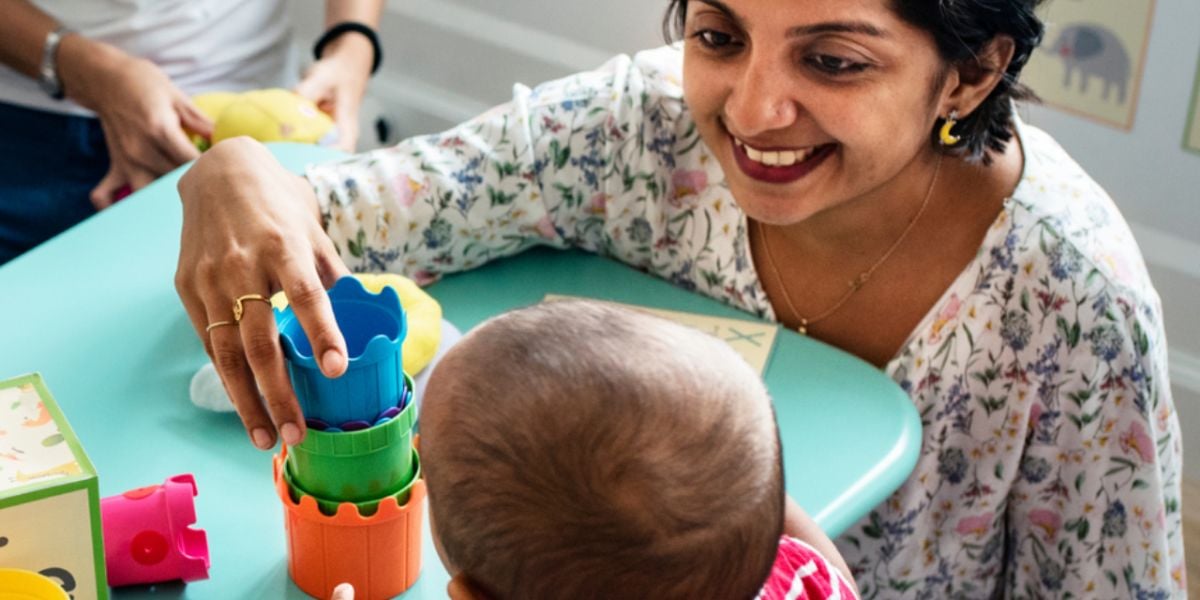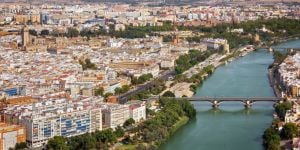
If you're moving to Spain with your young family, the education and care of your little ones will be a top priority. In this article, we'll focus on the options you'll have in your new country, including nurseries, kindergartens and childcare centers.
The Ministry of Education and Vocational Training (MEFP) is the government department responsible for the Spanish education system. Schools set their hours, but typically there are two main schedules. Some run from 9 a.m. to 5 p.m. with a two-hour lunch break from 1 p.m. to 3 p.m. or 9 a.m. to 2 p.m. with no lunch break.
Preschool in Spain
Education in Spain is not compulsory for children under six years of age, although it is recommended for their well-being and development. In general, many children start going to nurseries (guarderias) when they are a few months old.
Preschool education, or early childhood education and care (ECEC), is the first stage of the Spanish education system and is divided into two cycles. The first cycle (primer ciclo) covers children from a few months old up to the age of three who attend guarderias. You will find a good choice of public and private nurseries and daycare centers right across the country. The state doesn't cover this first stage, so whether your children attend a private or state-run guarderia, both charge fees.
The second cycle (segundo ciclo) is for ages three to six and is free. During this cycle, children attend escuela infantile (kindergarten). They are taught the basics in some subjects, learn through play, music and dance, and are encouraged with their social development.
The two cycles may be in the same location or different settings. Many primary schools in Spain have kindergartens attached to them.
Good to know:
The minimum statutory maternity leave in Spain is 16 weeks, which is one reason some babies attend nurseries when they are four months old. However, canguros or day nannies who look after several children at the same time are popular alternatives.
In Spain, children are taught Spanish in nurseries and kindergartens.
Registering for preschool in Spain
Pre-primary school in Spain is voluntary and available to every family. To register, you must complete an application form from the kindergarten of your choice or the regional education department. When applying, you will need to provide the following documents:
- Passport/residence card
- Your child's birth certificate
- Your child's health card and proof of required vaccinations for a child of their age
- A padron certificate (certificado de empadronamiento) from your local town hall. This is official proof of your address in Spain.
Private fee-paying kindergartens are also available.
Good to know:
Attending nursery and kindergarten is a good way for young children to learn Spanish and integrate. This is excellent preparation for primary school.
Finding a kindergarten in Spain
Are you an expat parent trying to find the perfect kindergarten for your children in Spain? We understand this can be daunting and overwhelming, especially in a foreign country. However, with some helpful tips, you can navigate the process and find the best fit for your little ones.
Start researching early: Begin your search for the right kindergarten well in advance to ensure you have enough time to explore different options and make an informed decision.
Seek recommendations: Reach out to other expat parents in Spain and ask for recommendations regarding kindergartens. They can provide valuable insights based on their own experiences.
Visit numerous kindergartens: Schedule visits to different kindergartens to get a feel for the environment, curriculum, facilities and staff. It is important to see firsthand how the kindergarten operates before deciding.
Consider proximity: Take into account the kindergarten's location and ensure it is conveniently accessible from your home or workplace. Consider the transport options available as well.
Curriculum and teaching approach: Look for kindergartens that follow a curriculum that matches your educational preferences. Research the teaching approach to determine if it aligns with your child's needs and learning style.
Assess the facilities and resources: Check the facilities of each kindergarten, including classrooms, play areas and outdoor spaces. Ensure they meet safety standards and offer a variety of resources that can enhance your child's learning experience.
Talk to the staff: Chat with teachers and administrators to understand their educational philosophies and how they handle children's individual needs.
Trust your instincts: Ultimately, trust your gut feeling when selecting a kindergarten for your child. Consider factors such as your overall impression, the warmth of the staff and the atmosphere of the kindergarten.
Babysitters in Spain
You may decide to leave your children with a canguro instead. If so, search for them on online platforms designed to connect parents with babysitters (such as Sitly), in classified ads in local newspapers and with nanny agencies. You can also ask our personal connections for recommendations. Just remember always to check their references and to take the time to conduct in-person interviews.
Useful links:
We do our best to provide accurate and up to date information. However, if you have noticed any inaccuracies in this article, please let us know in the comments section below.








